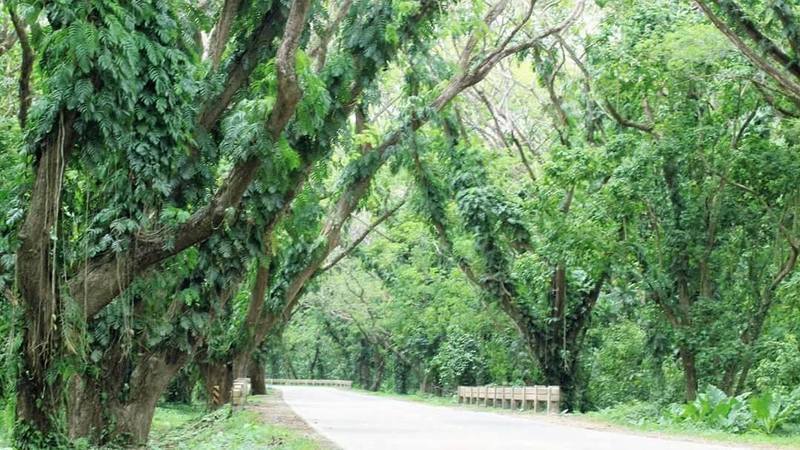
In particular, protesters are concerned about a scenic stretch of the existing road overhung by acacia trees that form a tunnel-like canopy.
An online petition to protect the trees has already gained more than 10,000 signatures.
The petition reads: “Local and foreign tourists, as well as commuters who pass through Acacia Tunnel are in awe of its breathtaking beauty.” The petition urges the authorities to “find a practical but brilliant solution to avoid the destruction of Acacia Tunnel.”
Environmental Legal Assistance Center (ELAC), a non-government organisation, described the superhighway project as an “environmental disaster” in the making, as it “poised to inflict irreversible damage on the natural environment of the province.”
A statement from the NGO read: “The evident rush to undertake this project, its brazen disregard of the established procedures designed to mitigate negative environmental impacts is a cause for concern for anyone who cares about the integrity of our province’s fragile environment.”
ELAC also claims that the project has not ticked all of the boxes relating to environmental protection. “Clearly, no consideration has been made on the expansion plan’s impact on the sensitive natural environment of Palawan.
“While we recognize that roads are part of the development and can contribute to facilitating travel and communication, they have a damaging impact if not planned well and studied carefully.”
Work on the expanded road has already started and it is targeted for completion in three years. The road will span the entire 372-mile length of the island.
Palawan, dubbed as the country’s “last ecological frontier”, is home to more than 38 per cent of the Philippines’ total wildlife species.
Some of this unique wildlife dwell in the province’s 689,161-hectare forest which is being cut down at an average rate of 3,200 hectares per year.
It is not know how many roadside trees will be lost as a result of the project.
Conservationists also warn that the road-widening project may significantly affect the population of wildlife in the province.
“We expect a dramatic increase in road kills especially affecting the endemic Palawan stink badger and possibly other mammals like Palawan porcupine and Palawan pangolin,” said biologist Peter Widmann, Science director of the Katala Foundation, another environmental NGO.
“Many studies indicate that if roads are built, the separated populations cannot interchange, leading to inbreeding and possibly local extinction.”
Palawan Governor Jose Alvarez maintains that the wider roads will cut journey times and boost the local economy, as it will encourage more tourists and also speed up the movement of agricultural and fishery products from the rural communities across the province.
“Its completion will accelerate the development and inclusive growth of Palawan in the coming years,” he said.

Comments are closed.